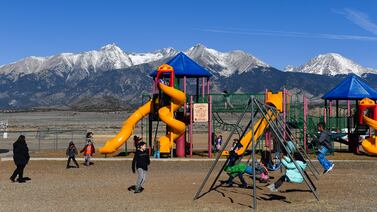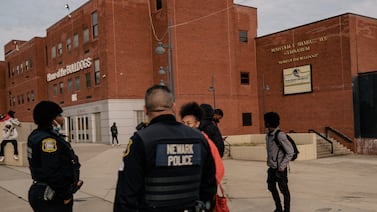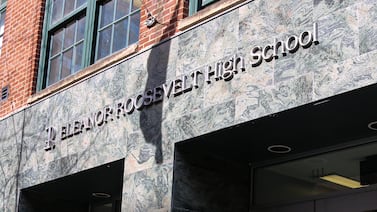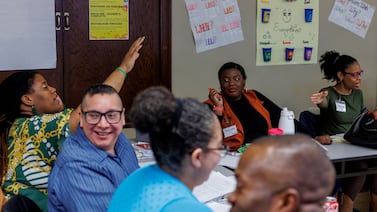Sign up for Chalkbeat Colorado’s free daily newsletter to keep up with education news in Denver and around the state.
Denver Public Schools signed a settlement agreement with school board Vice President Auon’tai Anderson that said the district would pay Anderson $3,500 — and Anderson agreed not to sue DPS for “damages, costs, or expenses” related to a 2021 investigation.
That’s according to a copy of the settlement agreement released by DPS Monday. The agreement was drafted in October 2022 but not signed until March. Separate district records show the district paid Anderson $3,500 in March out of the school board budget.
DPS Chief Financial Officer Chuck Carpenter signed the agreement on behalf of the district. The school board did not vote on the agreement, and some board members said they were not aware of the payment until recently. The agreement includes a clause meant to keep it secret.
“The Parties will not release a copy of this Agreement in response to any request under the Colorado Open Records Act, unless required to do so by a court order,” it says.
Colorado courts have repeatedly ruled that settlement agreements by political entities are subject to public records law. After DPS refused to make the agreement public, attorney Steve Zansberg advocated for its release on behalf of both Chalkbeat and the Denver Post.
DPS General Counsel Aaron Thompson maintained that the settlement agreement was confidential but released it after Anderson consented to do so.
The 2021 investigation referenced in the agreement was related to allegations of sexual misconduct by Anderson. Investigators did not substantiate the most serious claims, though they did find that Anderson flirted with a 16-year-old student online and made two intimidating social media posts during the investigation. The school board censured Anderson for that conduct in September 2021.
Later that fall, Anderson filed a defamation lawsuit against several people who brought forward accusations. While some of those claims were dismissed, claims against two defendants continue to make their way through the court system.
Anderson said Monday that he “did not file any lawsuit against Denver Public Schools to force the conversation of a settlement agreement.”
Chalkbeat reported the $3,500 payment last week. DPS had denied an open records request for the settlement agreement but released an invoice showing a $3,500 payment in April 2021 from Anderson to the law firm Decker & Jones, which represented him during the investigation.
Anderson said last week that he was “reimbursed for the out of pocket expenses I paid for representation during the ILG investigation.” ILG stands for Investigations Law Group, which was the firm that conducted the investigation.
The settlement agreement also says Anderson “agrees not to seek reimbursement or other payment through any process of the Denver Public Schools Board of Education” or under a state law that allows school board members to be compensated. Anderson said last week that he still owes more than $40,000 to his former attorney.
Melanie Asmar is a senior reporter for Chalkbeat Colorado, covering Denver Public Schools. Contact Melanie at masmar@chalkbeat.org.







